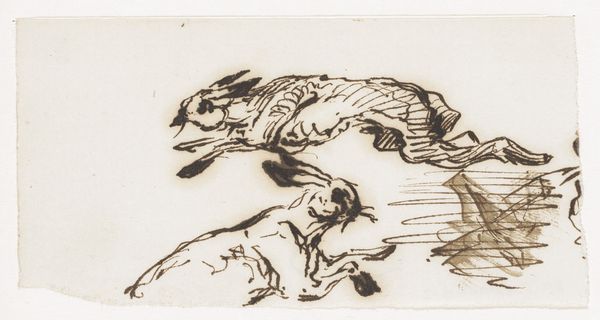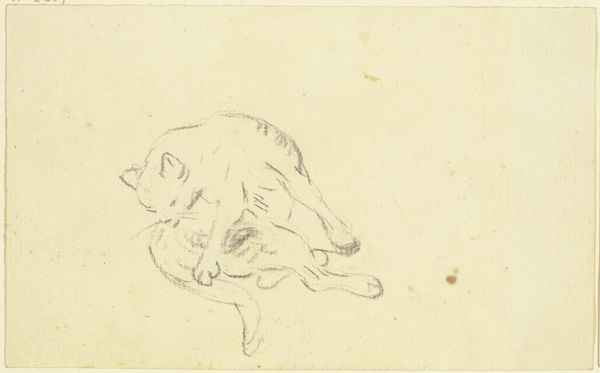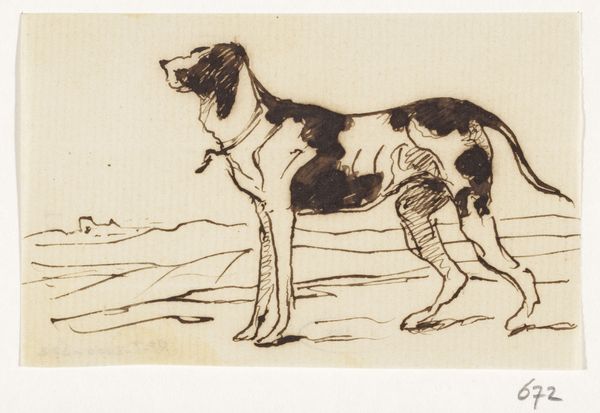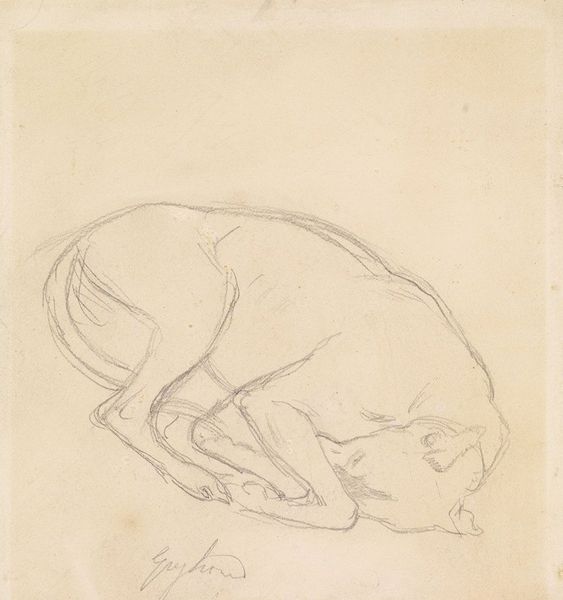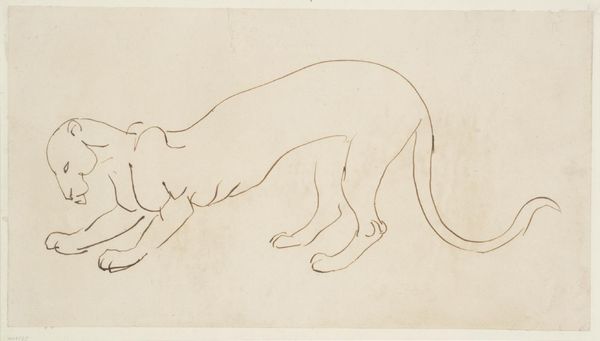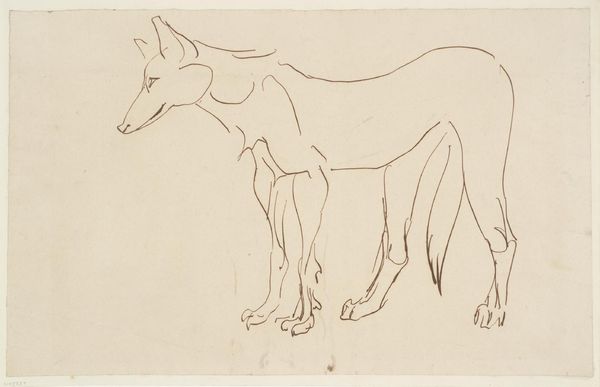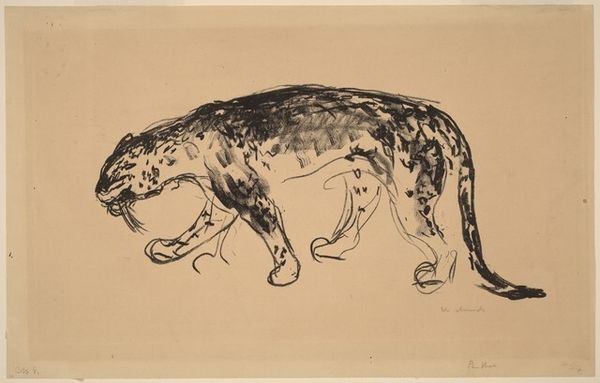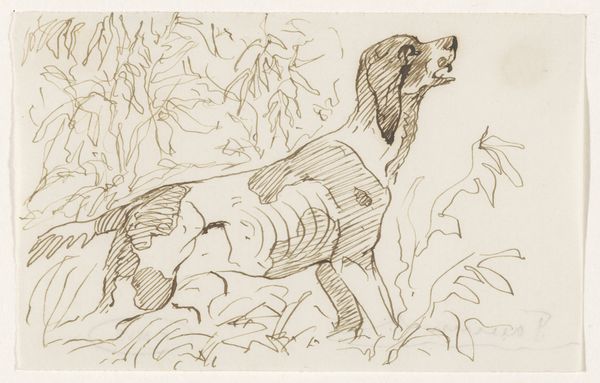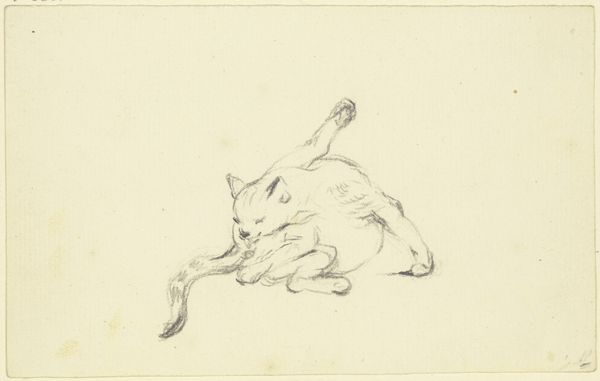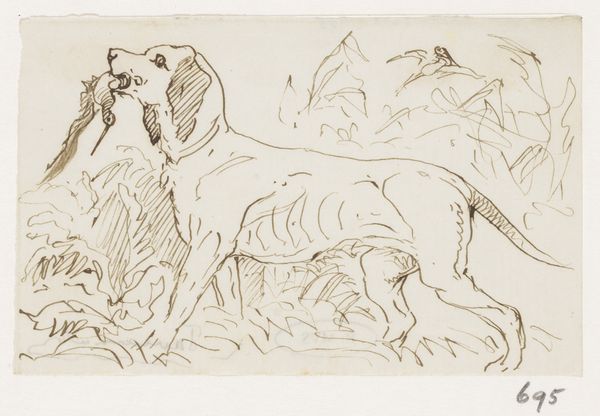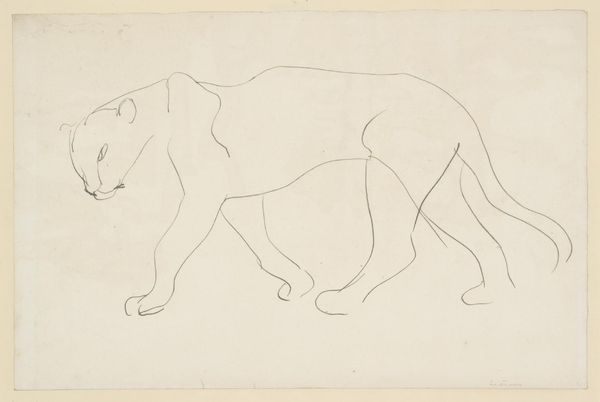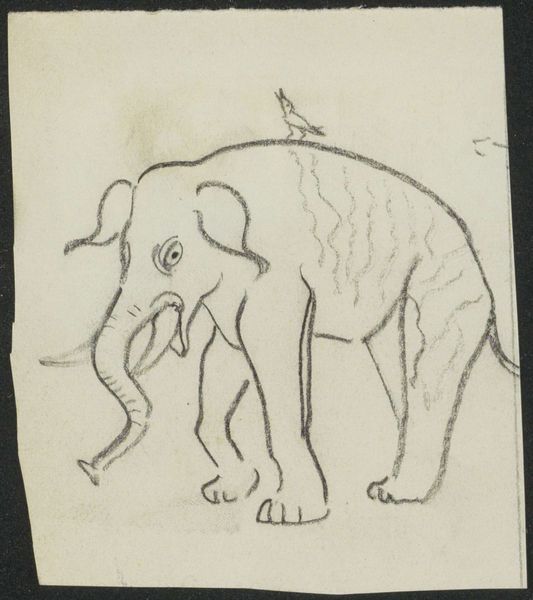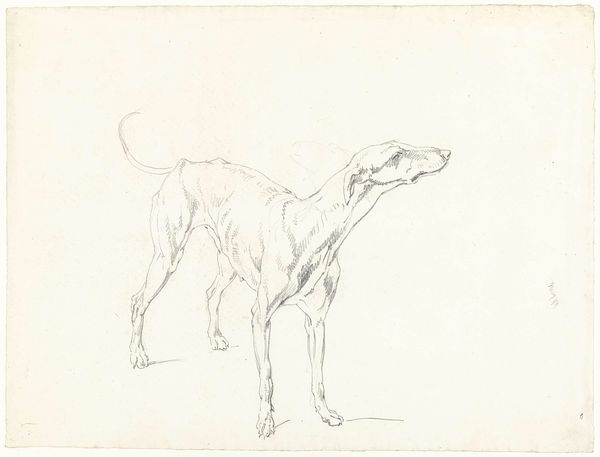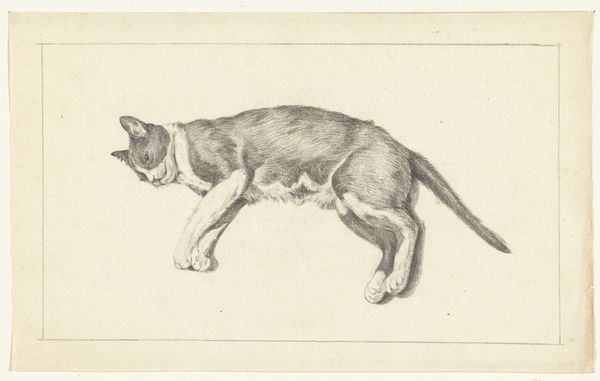
drawing, print, ink
#
drawing
#
ink drawing
#
quirky sketch
#
animal
# print
#
pen sketch
#
cartoon sketch
#
figuration
#
personal sketchbook
#
ink
#
idea generation sketch
#
ink drawing experimentation
#
pen-ink sketch
#
line
#
sketchbook drawing
#
initial sketch
Dimensions: plate: 19 x 15.9 cm (7 1/2 x 6 1/4 in.) sheet: 38.9 x 30 cm (15 5/16 x 11 13/16 in.)
Copyright: National Gallery of Art: CC0 1.0
Editor: This is Renée Sintenis' "Leopard," circa 1925, done in ink. It feels so raw and immediate, like a glimpse into the artist’s sketchbook. The economy of line is striking. What do you make of it? Curator: For me, it speaks to the act of mark-making itself. Sintenis uses the immediacy of ink to capture the essence of the animal, not its precise form. Consider the cultural context: Berlin in the 1920s, a hub of experimentation. Was this a quick study for a larger sculpture? The work embodies labor; each stroke deliberately contributes. Is it about the leopard itself, or is it a reflection of a society grappling with change? Editor: That's interesting. I hadn’t considered the link to sculpture, but her three-dimensional work is what she's primarily known for, right? So maybe this print enabled broader circulation and engagement? Curator: Exactly! Reproduction allowed Sintenis to engage with a larger audience, escaping traditional boundaries that elevated the "original". What is more valuable - a single sculpture seen by a limited number of people or multiple prints engaging viewers through circulation? We can also ask what materials and technologies were available and valued, versus which were disparaged and why? Editor: That's a great point, really highlighting that accessibility through material choice changes who gets to experience art. Curator: Precisely. Examining how art is created and distributed illuminates its social significance, disrupting a focus on solely artistic expression. Editor: I'll definitely think about the process and reach next time. Curator: Excellent. It changes the focus and broadens how one might appreciate what can feel simple at first glance.
Comments
No comments
Be the first to comment and join the conversation on the ultimate creative platform.
